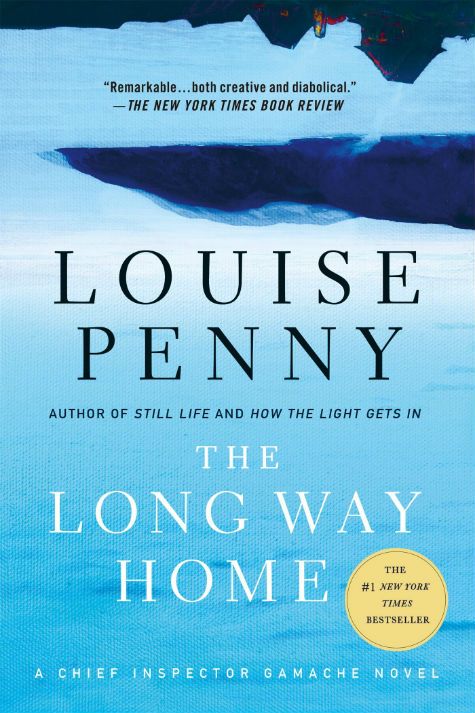
The Long Way Home
Reading Group Discussion Guide
1. Clara first approaches Gamache with great ambivalence: wanting (though fearing) to know what happened to Peter, while reluctant to disturb Gamache’s newfound peace. How did you feel about the decisions they both make at this point?
2. “I thought he’d come home,” Clara says of Peter. Did you? How did your view of him change in the course of the book?
3. What does it mean to you to be a “brave man in a brave country”? How does courage—or cowardice—feature in this novel?
4. On the first page of the book, we hear about Armand Gamache’s repeated gesture, “so tiny, so insignificant.” What is the true significance of this and other seemingly inconsequential actions in this story?
5. What do you think of Ruth’s role in this story? For example, consider the scene in Massey’s studio, where she “seemed to have lost her mind. But found, Reine Marie thought, her heart.”
6. Both Peter and Gamache’s father, in a sense, disappear. What is the impact of this kind of loss on Clara and Gamache? Have you ever experienced anything similar in your own life?
7. There is so much about art and the creative process in this book. How do we see that unfold in the lives not only of Clara and Peter, but also of Norman and Massey? For example, what do you make of the Salon des Refusés? What do you think it meant to the artists themselves?
8. There is so much about art and the creative process in this book. How do we see that unfold in the lives not only of Clara and Peter, but also of Norman and Massey? For example, what do you make of the Salon des Refusés? What do you think it meant to the artists themselves?
9. Louise has sometimes talked about the importance of chiaroscuro — the play of light and shadow — in her work. What are the darkest and the lightest points in this novel? What are some humorous moments, and how did you respond to them?
10. Peter’s paintings look completely different from different perspectives. How does that apply to other characters or events in the story?
11. In Chapter Six, Myrna observes about jealousy: “It’s like drinking acid, and expecting the other person to die.” How does jealousy play out in the lives of various characters here? What effects have you seen it have in real life?
12. How does Clara’s quote from one of her favorite movies, “Sometimes the magic works,” play out in the story?
13. While a number of Louise’s books end in unexpected ways, the conclusion of this one is particularly shocking. How did you feel as you were reading it, and what do you think when you look back at it now
14. In some ways Clara’s quest to find Peter recalls such classic journeys as The Odyssey and The Heart of Darkness. What are the most significant discoveries the central figures in this novel make along the way?
Click here for an easily printable PDF version!
